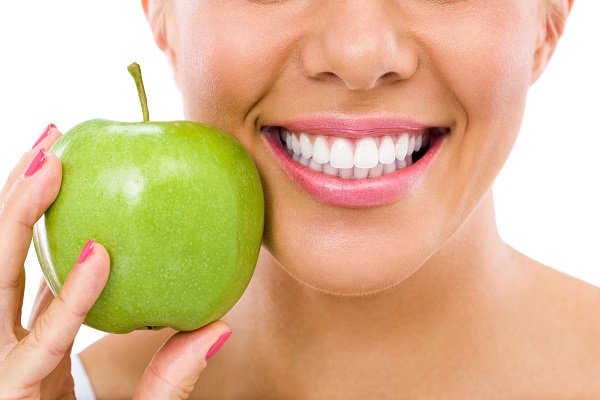Food and Drink to Avoid After Dental Implants Placement

It is helpful to prepare a diet in advance of dental implants placement to ensure you are able to make a quick recovery. There are certain foods and drinks that many commonly consume throughout the day that may need to be avoided during the recovery process.
Dietary restrictions after dental implants placement
One of the primary keys to a successful diet during recovery from dental implants placement is to avoid irritation, especially of the area where the implant was placed. The following are four foods and drinks to avoid to reduce the risk of irritation, increased swelling, discomfort and oral infection during the recovery process.
Hard foods
To avoid irritation, it is essential to avoid chewing as much as possible. Subsequently, harder foods are more likely than not off-limits, especially for the first week after placement. Common foods that are encouraged to avoid include most meats such as chicken, hamburger and steak, along with products involving bread such as pizza and sandwiches. Instead, focus on foods that require little chewing for protein, such as eggs, soup, etc.
Consuming softer foods will help patients avoid complications that may require a cosmetic dentist to go in and make repairs.
Sticky & crunchy foods
It is encouraged to avoid sticky and crunchy foods during the dental implants recovery process. Sticky foods such as candy or foods with lots of melted cheese can put excess pressure on teeth and require more chewing to digest properly. Sticky foods can also get stuck in teeth and increase the risk of oral infection. Crunchy foods such as crackers, pretzels and nuts can irritate the affected area of the implant, causing increased inflammation and discomfort. Instead, try and eat soft foods that require as little chewing as possible.
Coffee & tea
Many dental implants patients plan for what they are going to eat following the placement procedure, but all too many overlook what they are going to drink and continue to drink the same thing they did before. For many, coffee or tea is a big part of one’s day, especially those who rely on them to stay awake throughout the day. Although it may be difficult, it is strongly encouraged to give up coffee and tea consumption during implant placement recovery as it may increase the risk of irritation and oral infection.
Coffee and tea can also pose a risk to artificial teeth. Just like with natural teeth, they too can stain, causing a cosmetic complication.
Soft drinks
Soft drinks contain a high level of sugar and other ingredients that when combined with naturally occurring bacteria inside the mouth can increase the risk of cavities and oral infection. While it is ideal to always limit soft drink intake, it is especially important following dental implants placement. Instead, it is best to drink water in its place. Water helps wash away bacteria and food particles and keep the mouth clean throughout the day. Water also ensures that cosmetic imperfections are avoided, such as artificial teeth staining.
Talk to a cosmetic dentist about dental implants
To learn more about dietary restrictions after dental implants placement, get in touch with our cosmetic dentist team today. We help our patients throughout the entire dental implants process, from the initial consultation to the recovery, from dental implants placement to providing follow-up visits after treatment. All of this, to ensure quality results for the patient long-term.
Are you considering dental implants in the Gainesville area? Get more information at https://gallodental.com.
Check out what others are saying about our services on Yelp: Read our Yelp reviews.
Recent Posts
A full mouth reconstruction restores oral health, functionality, and aesthetics for patients with extensive dental issues. This process combines multiple restorative, cosmetic, and sometimes surgical procedures to address concerns such as missing teeth, decay, gum disease, or bite misalignment. No matter the issue, a full mouth reconstruction is tailored to the individual's unique needs, offering…
A denture reline something that almost all the recipients of dentures will need at some point. A reline is a procedure your dentist does to provide you with a new, more comfortable fit for your dentures.Our mouths are constantly changing throughout our entire life. Your bones shift and move as you get older, and your…
An emergency dentist can provide tooth-saving care in emergency dental situations. However, it is common not to know what constitutes a dental emergency nor how to handle common situations while waiting for dental care. Understanding when to seek help from an emergency dentist and how to manage the situation before you get to their office…
Many people start their search for a local dentist by typing "find a dentist near me" into the search box of their internet browser. However, finding a local dentist who provides high-quality care, feels comfortable, and meets your or your family's dental needs starts with knowing what to look for. Understanding the key features of…


